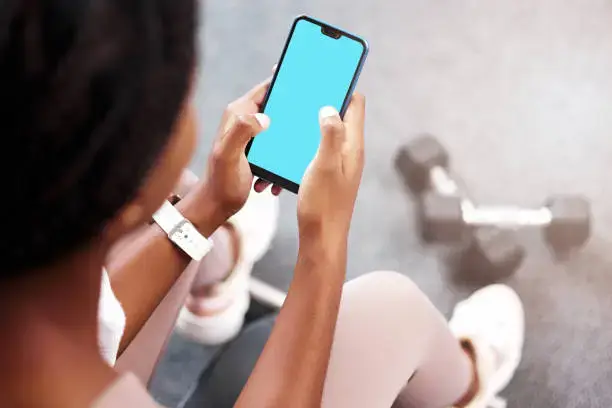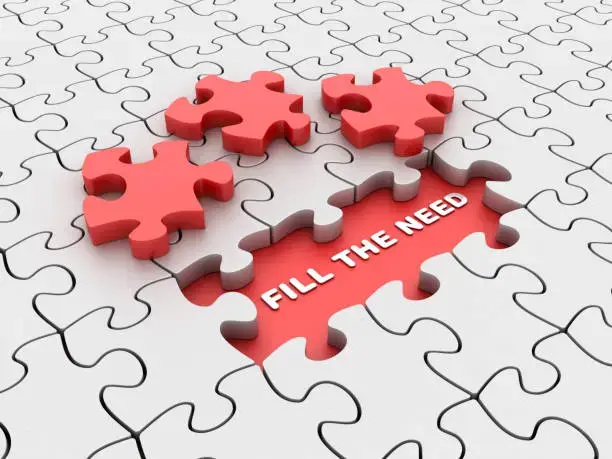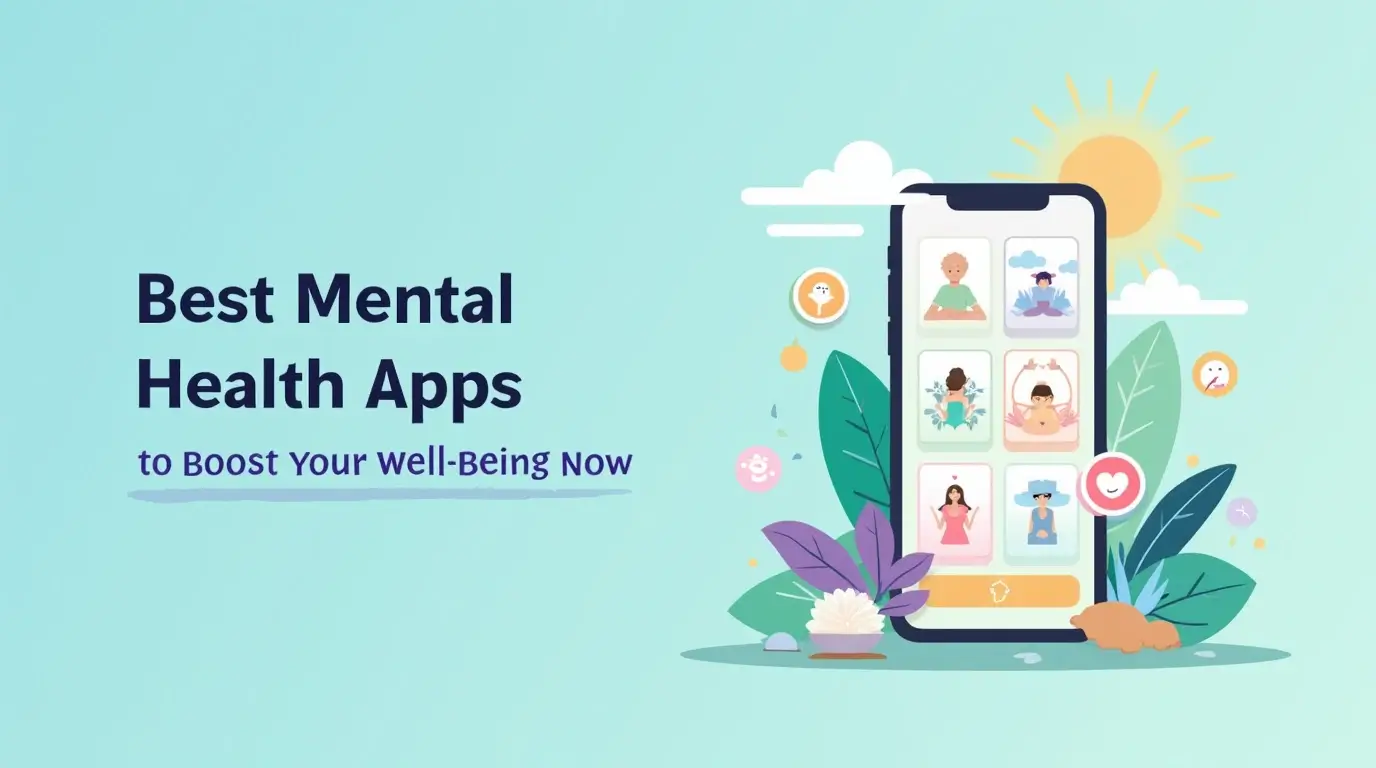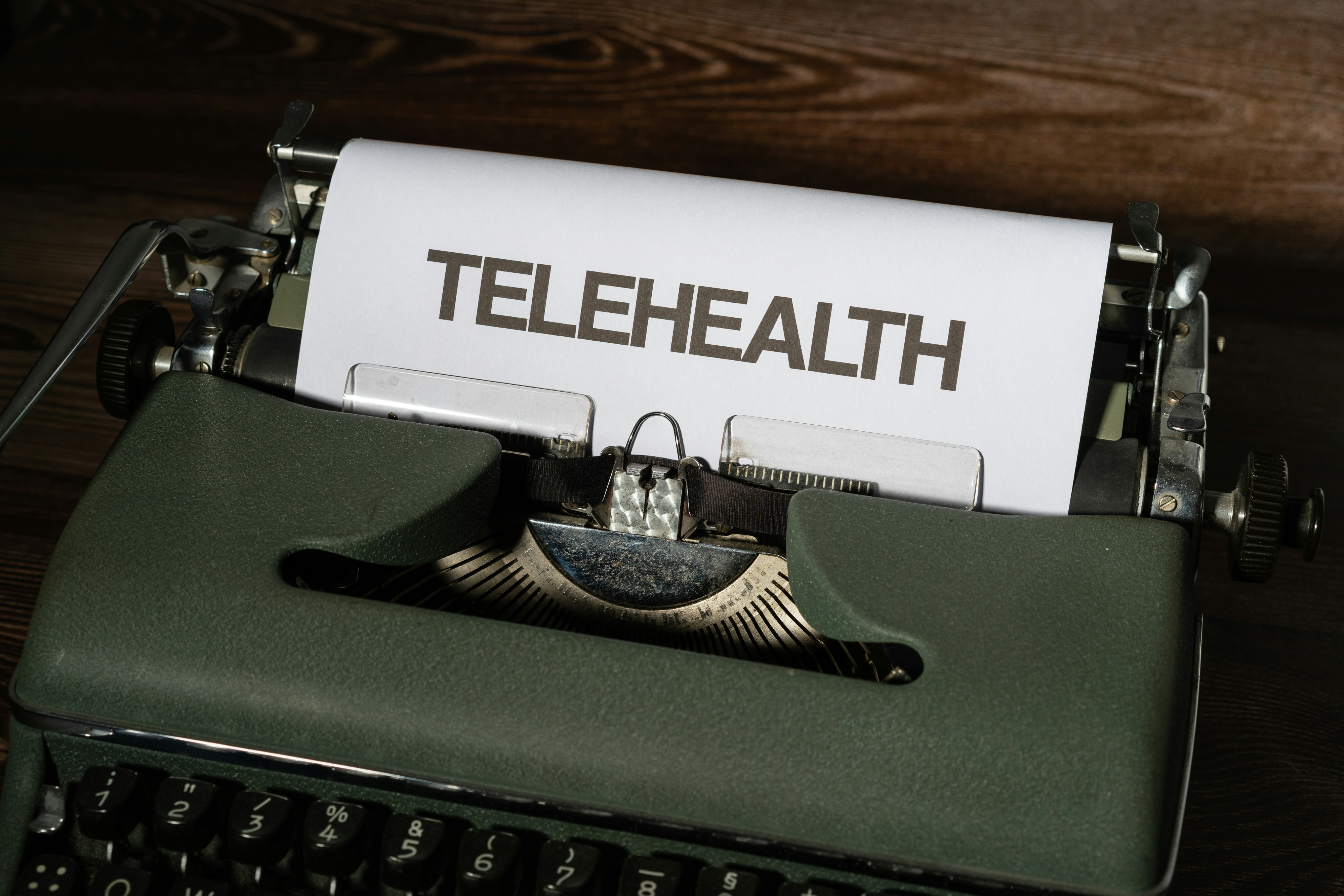We envision a world where everyone has the tools and knowledge to live a balanced, healthy, and fulfilling life. By providing reliable resources, personalized programs, and community support, we aim to be a beacon of hope for those on their health journey.
Table of Contents
Introduction to Mental Health Apps

best mental health apps
In recent years, mental health apps have gained significant traction as vital tools for individuals seeking to manage their mental well-being. The accelerating pace of modern life, combined with increasing awareness of mental health issues, has led to a growing reliance on digital solutions. These apps serve as accessible resources, providing support and guidance for users navigating their mental health journeys. They cater to various needs, ranging from anxiety and depression management to stress reduction and mindfulness practices.
The importance of mental health cannot be overstated, especially in a world where stressors are omnipresent. Mental health apps have emerged as crucial allies in promoting psychological resilience and enhancing emotional stability. Read : would blood work show cancer? The Truth You Need to Know1 now; They often feature a range of functionalities, including mood tracking, guided meditation, therapeutic exercises, and access to professional resources. This variety allows users to select tools that best fit their unique challenges and preferences, making mental health support more personalized and effective.
Additionally, the convenience of mental health apps cannot be overlooked. With the ability to access tools and resources directly from their smartphones, users can engage in self-care activities at any time and from any location. This flexibility empowers individuals to incorporate mental health management into their daily routines seamlessly. Furthermore, many of these apps provide educational content, helping users to better understand their mental health conditions and encouraging proactive approaches.
As technology continues to evolve, the field of mental health applications is likely to expand further, offering innovative features and enhancing user experiences. With their increasing presence, it is clear that mental health apps can play a significant role in improving overall well-being, allowing individuals to foster healthier minds in a fast-paced world.
Benefits of Using Mental Health Apps
The increasing integration of technology in daily life has led to the emergence of mental health apps, which provide a range of benefits to individuals seeking to enhance their well-being. One of the primary advantages is accessibility. Mental health apps are available on various devices, making them easily reachable for users whenever they need support. This immediacy helps users to engage with their mental health needs at their convenience, removing barriers typically associated with traditional therapy, such as scheduling conflicts or travel constraints.
Additionally, mental health apps often present a more affordable option compared to traditional mental health services. Many applications operate on a subscription model, with various pricing tiers, or even provide free features. This affordability widens access for individuals who might otherwise be unable to afford therapy sessions, ensuring that more people can prioritize their mental health without financial strain.
Furthermore, these apps not only provide access to professional help but also foster self-awareness. Users can track their mental health symptoms, understand patterns in their mood, and identify triggers, which is critical for personal development. Features such as journaling prompts, mood check-ins, and symptom trackers create a comprehensive toolbox for individuals to monitor their mental well-being actively. Alongside this, many mental health apps offer resources and exercises that promote mindfulness and self-care practices. Techniques like guided meditation, breathing exercises, and cognitive behavioral therapy (CBT) tools are often readily available, encouraging users to develop effective coping strategies that can lead to significant improvements in mental health.
Thus, by utilizing mental health apps, individuals can achieve a higher standard of well-being through accessible, affordable, and engaging resources that promote self-awareness and mindfulness.
Features to Look for in Mental Health Apps

When selecting a mental health app, it is crucial to consider various features that can significantly enhance the user experience and efficacy of the app. One of the most important functionalities is guided meditation. This feature provides users with structured sessions that can help alleviate stress and promote mindfulness, making it a vital aspect of an effective mental health app.
Mood tracking is another essential function that allows users to monitor their emotional states over time. This feature not only assists individuals in identifying patterns related to their moods but also empowers them to make informed decisions about their mental health strategies. Journaling capabilities serve a similar purpose, enabling users to express their thoughts and feelings in a safe space, which can facilitate greater emotional clarity and resilience.
Community support is also a vital component to consider. Many mental health apps offer forums or peer support systems where users can connect with others who are experiencing similar challenges. This aspect fosters a sense of belonging and reduces the feeling of isolation often associated with mental health issues.
Furthermore, personalization options within an app can enhance engagement and effectiveness. Users value features that adapt to their needs and preferences, whether through customized content or tailored meditation techniques. The ability to select specific topics or focus areas can make the app more relevant to individual experiences.
Lastly, it is essential to prioritize professional backing and research-based content. Apps that are developed or endorsed by mental health professionals often provide higher-quality information and support. Ensuring that the app is based on evidence-based practices can instill a sense of trust and security in users.
Top Mental Health Apps for Anxiety Management
Anxiety management has become increasingly essential in today’s fast-paced world, leading to the development of various mental health applications that aim to provide support and resources. Several highly rated apps have emerged, specifically designed to assist users in managing their anxiety effectively.
One of the most popular apps is Headspace, which is primarily known for its meditation and mindfulness exercises. The app offers guided sessions tailored to anxiety reduction, helping users cultivate a sense of calm and grounding. Users appreciate its user-friendly interface and the variety of content available, which caters to different preferences and schedules.
Another noteworthy option is Calm, which provides a comprehensive suite of tools for mental wellness, including meditation, sleep stories, and relaxing music. Specifically targeting anxiety, the app features programs designed to manage stress levels and improve overall emotional well-being. Reviewers often highlight the soothing design and calming sounds, helping them create peaceful routines for daily focus and relaxation.
Wysa stands out with its innovative approach by offering an AI-based chatbot that engages users in conversations about their feelings. This app is especially valuable for individuals who may be hesitant to reach out for help, as it provides a more discreet space for self-exploration and emotional support. Users have reported a significant decrease in anxiety levels after utilizing its tools, which include mood tracking and cognitive behavioral therapy (CBT) exercises.
Lastly, Sanvello integrates various therapeutic techniques to assist individuals in navigating anxiety. The app offers mood tracking, guided journeys, and community support, making it easier for users to connect with others facing similar challenges. Many users commend its evidence-based approach, which emphasizes practical strategies for managing anxiety in everyday life.
With a plethora of options available, these apps represent some of the best tools for anxiety management in the digital age. By providing personalized support and resources, they empower individuals to take charge of their mental health journey.
Best Apps for Mindfulness and Meditation

In today’s fast-paced world, mindfulness and meditation have become essential practices for enhancing mental well-being. Numerous mental health apps available offer various features that cater to both beginners and seasoned practitioners. These apps provide an array of meditation techniques, guided sessions, and mindfulness exercises, helping users cultivate a more peaceful state of mind.
One of the most popular apps is Headspace, known for its user-friendly interface and structured courses. Headspace offers a variety of meditation styles, including mindfulness, focused attention, and sleep aids. The app includes themed meditations tailored to specific feelings or situations, making it approachable for novices. Additionally, Headspace continuously updates its library with fresh content, keeping users engaged and motivated.
Another noteworthy app is Calm, which has gained acclaim for its extensive range of content beyond meditation. Calm not only provides guided mindfulness exercises but also boasts sleep stories and calming music. The app emphasizes relaxation, helping users unwind after a long day or prepare for sleep. Its ambient soundscapes and visuals create a serene atmosphere, enhancing the overall meditation experience.
Insight Timer distinguishes itself through its community features, allowing users to connect with others on their mindfulness journeys. It hosts thousands of free guided meditations led by different instructors worldwide, spanning various techniques and philosophies. Users can tailor their experiences by selecting meditations based on duration, themes, and instructors, accommodating diverse preferences.
Overall, the best mindfulness and meditation apps are those that resonate with the individual’s unique needs and preferences. As users explore these tools, they can find the right combination of features and support to cultivate their mindfulness practice, ultimately contributing to better mental health and well-being.
Apps for Mood Tracking and Journaling
Mood tracking and journaling apps have increasingly gained popularity as tools for enhancing mental health and well-being. These applications assist users in reflecting on their emotions, enabling them to identify patterns in their mood fluctuations over time. Through consistent journaling and recording of feelings, individuals can cultivate greater self-awareness, which is essential for personal growth and emotional stability.
One prominent feature of mood tracking apps is their user-friendly interface, which encourages daily engagement. Users are often prompted to log their current mood, noting any relevant triggers or environmental factors. This practice can help individuals discern how specific events or situations influence their feelings, allowing them to develop coping strategies for challenging times. Additionally, many of these applications offer visualization tools that present mood data in easy-to-understand graphs, further assisting users in monitoring their emotional trends.
Journaling within these apps provides a private space where thoughts and reflections can be expressed without judgment. Users can write about their day, explore their feelings, or even articulate gratitude. This act of writing can serve as a form of emotional release, reducing stress and fostering a more positive outlook. Some apps incorporate guided journaling prompts to help those who may struggle with writer’s block, ensuring that users can consistently engage with their mental health practice.
Furthermore, these mood tracking and journaling apps often include goal-setting features, which allow users to establish objectives related to their mental health. By setting achievable targets, such as practicing mindfulness or improving sleep habits, individuals can further enhance their self-development journey. Overall, integrating mood tracking and journaling into one’s routine provides invaluable insights into emotional states, reinforcing the path to improved mental health.
Supportive Communities and Therapy Apps

The emergence of technology has significantly transformed the landscape of mental health care, particularly through the proliferation of supportive communities and therapy apps. These platforms are designed to create environments where users can connect with mental health professionals and peers, fostering a sense of community that is essential for psychological well-being. One of the primary advantages of these applications is the accessibility they offer. Individuals who may feel isolated in their struggles can find solace in knowing that they are not alone. By engaging in discussions with others who share similar experiences, users often find reassurance and encouragement, mitigating feelings of loneliness and despair.
Many therapy apps, like Talkspace and BetterHelp, enable users to communicate with licensed mental health professionals remotely. This feature is particularly valuable for those who may have difficulty accessing traditional therapy due to geographical constraints, financial limitations, or social stigmas. Through video calls, messaging, and sometimes even voice notes, these apps provide a flexible and confidential space for individuals to address their mental health needs. Moreover, the ease of communication fosters a more open dialogue between the therapist and the patient, allowing for tailored therapeutic approaches that may lead to more effective outcomes.
In addition to professional help, numerous platforms offer peer support groups where users can share their journeys and tips for coping. Apps like 7 Cups and Sanvello are designed to connect individuals with trained listeners and support groups, enhancing the mental health journey through shared experiences. This element of community support is crucial; research indicates that individuals who feel connected to others tend to experience reduced levels of anxiety and depression. Ultimately, the combination of accessible mental health professionals and supportive peer networks offered by these apps plays a vital role in improving overall well-being and enhancing the user’s mental health experience.
User Reviews and Experiences
The use of mental health apps has gained traction in recent years, and many users have shared their experiences, highlighting the transformative impact these applications can have on one’s well-being. A notable example is the popular app, Headspace. Users frequently report that the guided meditation sessions helped them cultivate a sense of calm amidst their hectic lives. One user stated, “Headspace has not only improved my ability to focus but has also significantly reduced my anxiety levels. The short meditation sessions fit perfectly into my daily routine.” Such testimonials underscore the practical benefits of integrating mental health apps into everyday life.
Another app that has garnered attention is Calm, which emphasizes sleep improvement and mindfulness. Users have praised the diverse range of resources available, from sleep stories to relaxing music. One user remarked, “I struggled with insomnia for years, and Calm’s sleep stories have been a game changer. I find myself drifting off within minutes, something I thought was impossible.” This illustrates how personalized content can address specific mental health concerns, making these applications effective tools for users seeking relief from stress and sleep disturbances.
On the other hand, some users have shared their experiences with mood-tracking apps such as Daylio. By journaling their feelings daily, many report gaining insights into their emotional patterns. One user mentioned, “Using Daylio helped me identify triggers that affect my mood. I never realized how much my lack of sleep correlated with my irritability. Tracking my emotions has been enlightening and empowering.” This highlights the role of self-awareness in the realm of mental health, showcasing how apps can facilitate personal growth and emotional regulation. Through these narratives, it becomes clear that the efficacy of mental health applications often lies in their ability to cater to individual needs, enhancing personal well-being through varied approaches.
Conclusion and Recommendations

Throughout this blog post, we have explored a wide array of mental health apps designed to support individuals in their pursuit of improved well-being. The importance of mental health cannot be overstated, and the availability of technology in the form of mobile applications has revolutionized the accessibility of mental health resources. These apps provide convenient and often immediate support, facilitating access to techniques such as mindfulness, cognitive behavioral therapy, and mood tracking.
As we recognized, different applications cater to various needs and preferences. For instance, users seeking structured therapy might find benefit in platforms like BetterHelp or Talkspace, which offer professional help through licensed therapists. Alternatively, those looking for stress relief and relaxation techniques should consider apps such as Headspace or Calm, which emphasize meditation and mindfulness practices to improve mental clarity and enhance relaxation. In contrast, if your interest lies in self-improvement through personal monitoring, Moodpath or Daylio could serve as effective tools for tracking emotional patterns and fostering self-awareness.
It is crucial for users to personalize their app selection based on their specific mental health challenges. For those dealing with anxiety, an app focusing on anxiety management techniques would be more beneficial than a general mental health app. Similarly, individuals experiencing depression may find value in apps that provide mood tracking and motivational content. The key to maximizing the benefits of these applications lies in consistent use and a commitment to integrating mental health practices into daily routines.
In conclusion, we encourage readers to explore the recommended mental health apps and experiment with multiple options to find the right fit. Mental health is a personal journey, and leveraging technology can play a significant role in enhancing one’s overall well-being. Take charge of your mental health today by choosing an app that resonates with your goals, and remember that seeking help is a sign of strength.
Did You Try this tips ?
There are no reviews yet. Be the first one to write one.
blood work brain health cancer treatment climate health diabetes treatments digestive health disease management disease mapping exercise plan fitness tips gut health hair care hair growth hair treatment health foods health insurance health tips healthy habits healthy recipes heart disease home workouts immune boost immune foods keto plan keto recipes kidney disease lifestyle diseases meal delivery medicine innovation melanoma treatment mental health morning exercise natural remedies non melanoma nutritional advice nutrition assistance raw nutrition skin cancer skin care skin health sleep exercise sleep technology telemedicine services viral threats weight loss








